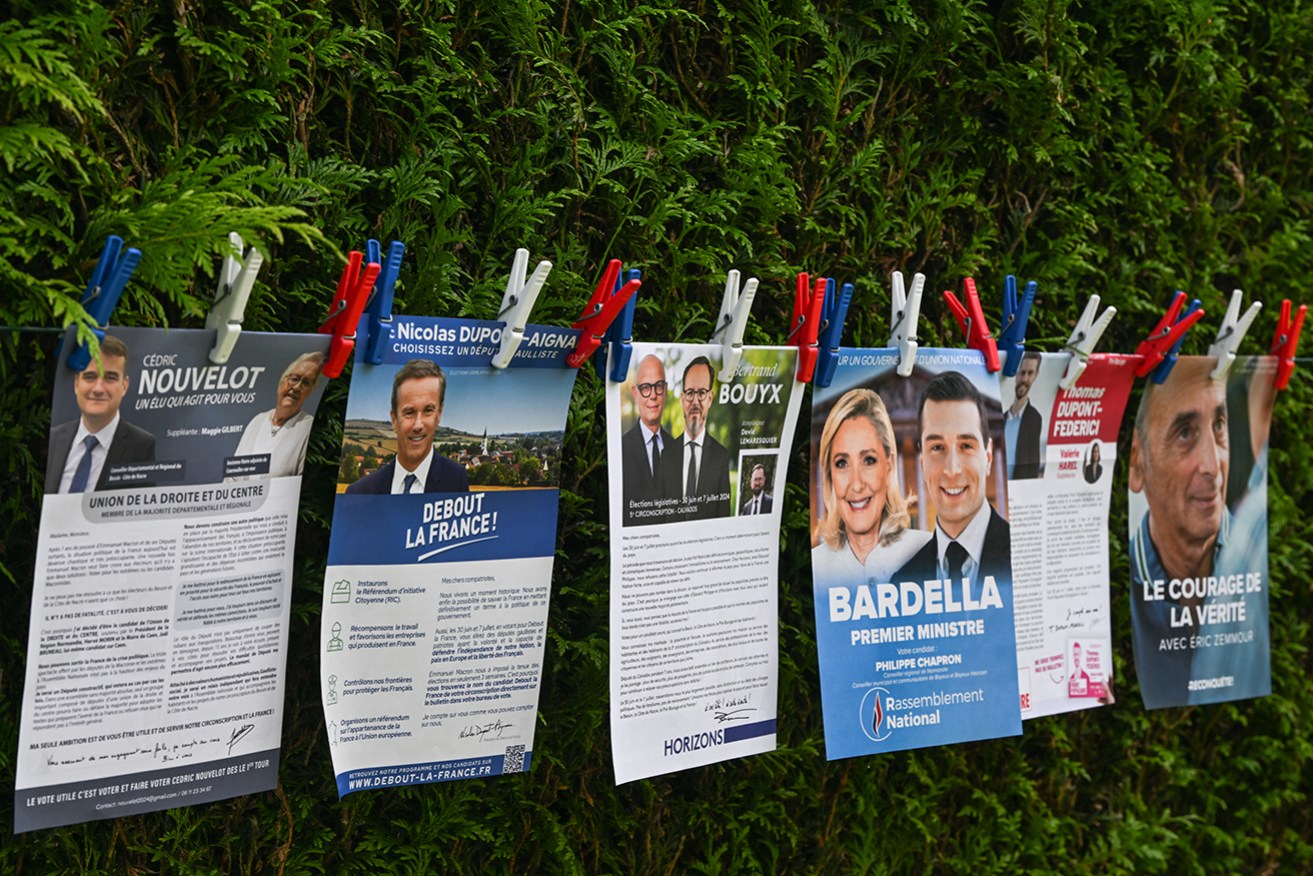France votes in election that could hand power to far right

Polls have opened in a French election the far-right National Rally party is expected to dominate. Photo: NurPhoto via Getty
Polling booths have opened in the first round of a snap parliamentary election in France that could usher in the country’s first far-right government since World War II – a potential sea change at the heart of the European Union.
President Emmanuel Macron stunned the country when he called the vote after his centrist alliance was crushed in European elections in June by Marine Le Pen’s National Rally.
Her Eurosceptic, anti-immigrant party was a long-time pariah but is now closer to power than it has ever been.
Polls opened at 0600 GMT on Sunday and will close at 1600 GMT in small towns and cities, with an 1800 GMT finish in the bigger cities, when the first exit polls for the night and seat projections for the decisive second round a week later are expected.
However, the electoral system can make it hard to estimate the precise distribution of seats in the 577-seat National Assembly, and the outcome will not be known until the end of voting on July 7.
Le Pen confident
“We are going to win an absolute majority,” said Le Pen in a newspaper interview on Wednesday, predicting that her protege, 28-year-old Jordan Bardella, would be prime minister.
Her party has a high-spending economic program and seeks to reduce immigration.
If her party does win an absolute majority, French diplomacy could be headed for an unprecedented period of turbulence: with Macron – who has said he will continue his presidency until the end of his term in 2027 – and Bardella jostling for the right to speak for France.
France has had three periods of “cohabitation” – when the president and government are from opposite political camps – in its post-war history, but none with such radically divergent world views competing at the top of the state.
Global challenge
Bardella has already indicated he would challenge Macron on global issues.
France could lurch from being a pillar of the EU to a thorn in its side, demanding a rebate of the French contribution to the EU budget, clashing with Brussels over European Commission jobs and reversing Macron’s calls for greater EU unity and assertiveness on defence.
Le Pen also has a history of pro-Russian sentiment and while the party now says it would help Ukraine defend itself against Russian invaders, it has also set out red lines such as refusing to provide long-range missiles.
Opinion polls have suggested National Rally has a comfortable lead of 33 to 36 per cent of the popular vote, with a hastily assembled left-wing coalition, the New Popular Front, in second place on 28 to 31 per cent and Macron’s centrist alliance in third on 20 to 23 per cent.
The New Popular Front includes a wide range of parties, from the moderate centre-left to the hard-left, Eurosceptic, anti-NATO party France Unbowed, led by one of Macron’s most vitriolic opponents, Jean-Luc Melenchon.
How the poll numbers will translate into seats in the National Assembly is hard to predict because of how the election works, said Vincent Martigny, professor of political science at the University of Nice.
First-round test
Candidates can be elected in the first round if they win an absolute majority of votes in their constituency, which is rare.
Most constituencies will need a second round involving all candidates who received votes from at least 12.5 per cent of registered voters in the first round.
“If you have a very high level of participation you might have a third or fourth party that is getting into the struggle,” Martigny said.
“So then … there’s a risk of split voting and we know that the split vote favours the National Rally.”
Martigny said no one knew whether candidates from Macron’s camp would consider dropping out of the second round to give rivals from the left a chance of beating National Rally, or the reverse.
Le Pen and Bardella have sought to make their party’s image more acceptable to the mainstream, for example by denouncing antisemitism.
Le Pen’s father Jean-Marie Le Pen, founder and long-term leader of the party’s forerunner, had a history of overtly antisemitic comments.
-Reuters








